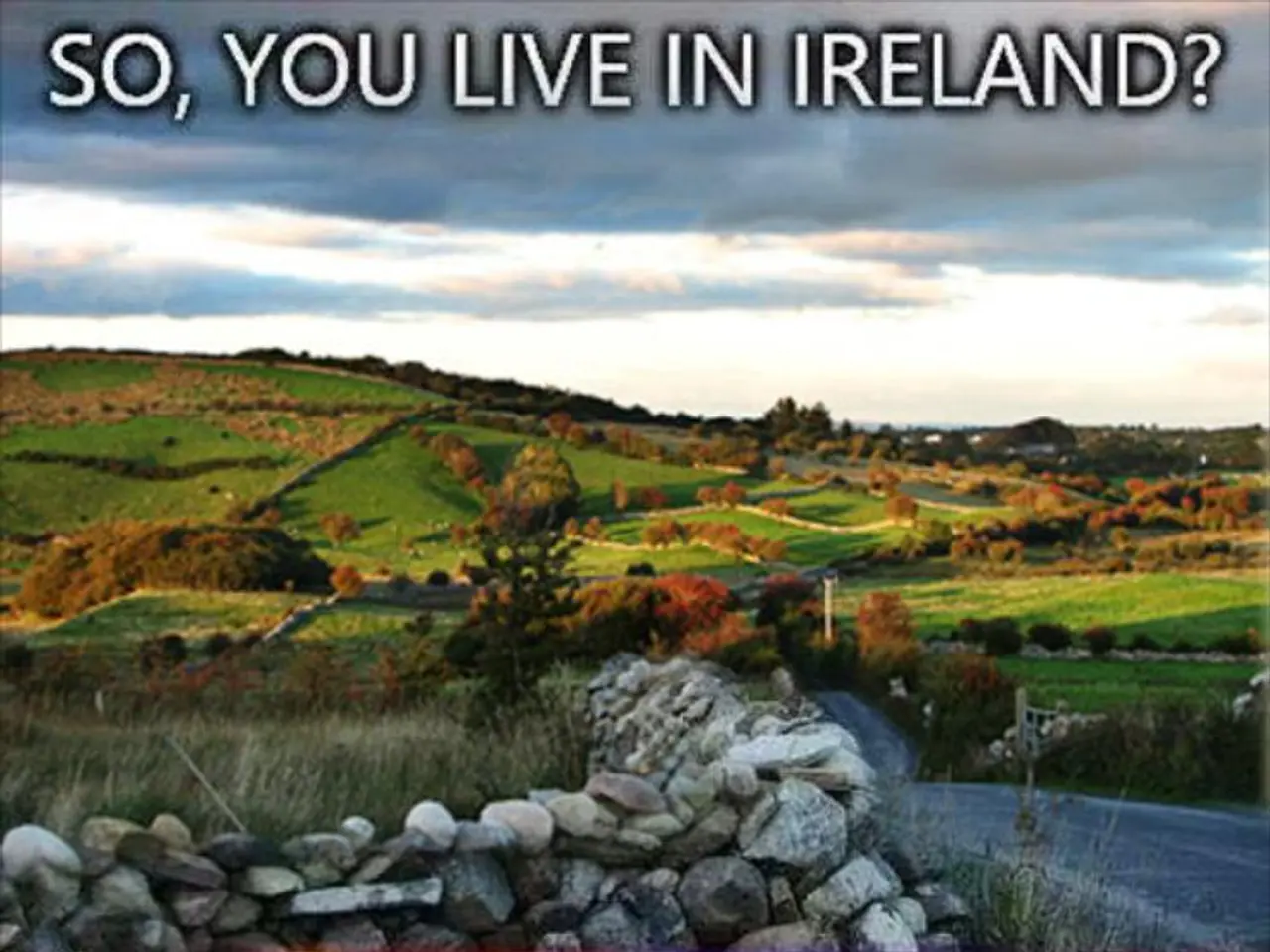"Wildfire smoke crisis": Michigan Politician Urges Canada for Intervention
Canada Under Pressure to Reform Forest Management Policies Amid Wildfire Crisis
The wildfire crisis in Canada has escalated, with 2025 being the smokiest year on record for Manitoba due to widespread wildfires. This has led to concerns about the impact of the smoke on US air quality, particularly in regions like Michigan and the Midwest.
Congressman John James, who represents Michigan's 10th District in the U.S. House of Representatives, has been vocal about the need for Canada to reform its forest management policies. In a letter to Prime Minister Mark Carney, James urged Natural Resources Canada and the Canadian Forest Service to update outdated policies and invest in modern technologies like prescribed burns and proactive wildfire mitigation.
The wildfire crisis has sparked calls for urgent action to limit wildfire size and smoke impacts. Key points in the efforts toward reform include the emphasis on modern forest management strategies, such as prescribed burns, to reduce wildfire risk and intensity. There is also pressure on Canada to improve cross-border cooperation and public health protections, with criticism directed at some Canadian leaders for dismissive attitudes toward US health risks.
During a state of emergency, Manitoba Premier Wab Kinew stated that there's no place for certain behaviour in politics. However, his comments regarding the health impact on Americans from the wildfire smoke drew criticism from James. Kinew dismissed the health impact as 'trivial' and referred to the US lawmakers who wrote the letter as "ambulance chasers."
James believes the wildfire smoke issue is actively damaging the U.S.-Canada relationship. He considers it a public health emergency and has called on Canadian leaders to take action to contain the wildfire crisis in Canada.
In response to a letter from U.S. lawmakers in Minnesota and Wisconsin on July 10, Premier Kinew praised the work of firefighters from the US in helping with wildfire efforts. However, he expressed disapproval towards US lawmakers seeking attention on social media platforms like Instagram.
Canada's current forest management policies emphasize sustainability, Indigenous stewardship, and technological innovation, with about 90% of managed forests under sustainable practices. Despite this, critiques highlight ongoing issues such as forest degradation, insufficient protection of biodiversity, and lack of full transparency in government reporting.
The wildfire smoke in Michigan is attributed to wildfires in Manitoba. As the crisis continues, Canada faces international and domestic pressures to more aggressively reform policies and adopt advanced wildfire control measures. Restrictions on activities such as hiking and camping are being implemented during severe wildfire seasons to reduce risk and manage the crisis, highlighting the scale of the current fire emergency in Canada.
- The news of the wildfire crisis in Canada has raised concerns about the impact of smoke on climate, affecting not just Canada but regions like Michigan and the Midwest, as stated by Congressman John James.
- James, in a letter to Prime Minister Mark Carney, urged the need for Canada to update its forest management policies and invest in modern technology like prescribed burns and proactive wildfire mitigation for better handling.
- The ongoing wildfire crisis has sparked debates in politics, with calls for urgent action to limit wildfire size and smoke impacts, while also encouraging modern forest management strategies like prescribed burns for risk reduction.
- The spreading of wildfire smoke has become a mental-health issue, given the dismissive attitudes displayed by certain Canadian leaders towards US health risks, drawing criticisms from US lawmakers like John James.
- As the wildfire crisis escalates, Canada's focus on health and wellness, including air quality, becomes even more critical, with the future of forest management and international relationships at stake.
- In addition to the environmental-science aspects, there's growing emphasis on health, with critics highlighting ongoing issues like forest degradation and insufficient protection of biodiversity in Canada's forest management policies.
- Amidst the crisis, the importance of science-based solutions and accurate reporting on government policies is crucial to ensure effective prevention and management of wildfires.
- The wildfire crisis has also impacted the general-news cycle, with crime and justice taking a backseat to the ongoing crisis, and accidents due to the extreme weather becoming increasingly common as the crisis continues.




